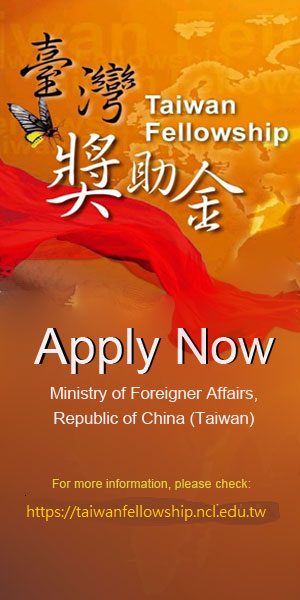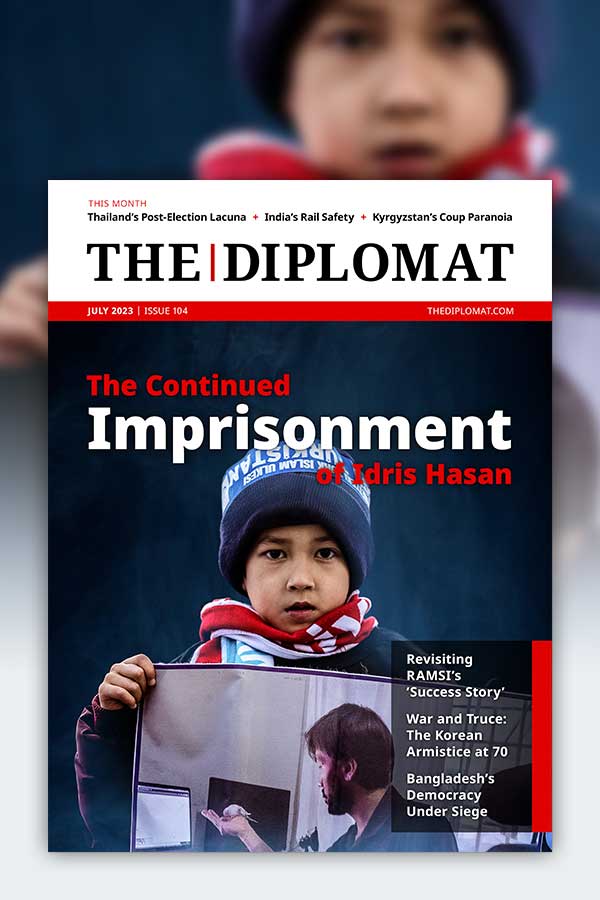| Welcome to the latest issue of Diplomat Brief. This week our top story explores the situation in Sri Lanka one year after protests ousted the president. We also have an interview with Lesslie Viguerie, the U.S. ambassador to Kyrgyzstan, about the state of the Kyrgyzstan-U.S. relationship. |
| Story of the week | ![[object Object]](https://thediplomat.com/diplomat-brief/2023/vol28/images/feature.jpg?v=2) | Society 1 Year Later, Sri Lanka’s Struggle ContinuesWhat Happened: On July 9, 2022, thousands of Sri Lankans occupied the President’s House in Colombo. It was the culmination of four months of protests decrying government mismanagement amid an unprecedented economic crisis. President Gotabaya Rajapaksa was forced to flee the country; within a week, he had resigned, fulfilling a key goal of the protests. However, a year later, many Sri Lankans remain frustrated by the slow pace of economic recovery. Our Focus: The new Sri Lankan government, under President Ranil Wickremesinghe, has tried hard to promote an image of stability and steady improvement. But the economic crisis is far from over for many Sri Lankans. “Inflation coupled with real wages falling have meant people have stopped eating, and that is the most significant indicator of this crisis: that people are skipping meals,” Swasthika Arulingam, an attorney of law and trade unionist, told The Diplomat. A mother of three who spoke to The Diplomat provided a personal example: “Sometimes I cannot afford to eat myself but only keep enough for my children. This was happening with the former government but there is still no solution. We still suffer, we feel forgotten, and I am not sure what to do.” What Comes Next: The protests of 2022 largely focused on the personal: the Rajapaksa brothers, who held the presidency and prime ministership during the economic crisis. But a year after their ouster from power, Sri Lanka has yet to grapple with the structural factors at work behind the scenes. “One needs to understand that the Sri Lankan crisis is not simply because of debt but primarily because of governance failure,” human rights activist Shreen Saroor told The Diplomat. “This country is not going to recover permanently by artificially fixing the inflation and dollar crisis and going on an undemocratic path.” Read this story |
| Behind the News | INTERVIEW Lesslie ViguerieU.S. Ambassador to Kyrgyzstan Lesslie Viguerie on the prospects for expanded security cooperation: “We had always been providing law enforcement and border guard training, so they can protect their borders. We’re hoping to expand that more and the Kyrgyz seem interested in doing that… [Kyrgyzstan] definitely lives in a tough neighborhood and it’s got lots of pressure from neighbors to the east and the north. “ Read the interview |
| This Week in Asia | Northeast Asia Leaders of Japan, South Korea Attend NATO SummitFor the second year in a row, the so-called Indo-Pacific 4 leaders – including Japanese Prime Minister Kishida Fumio and South Korean President Yoon Suk-yeol – are joining the NATO summit in Europe. The summit on July 11-12 will see both Japan and South Korea pushed on their commitments to Ukraine, while allowing them to advance their own priorities vis-a-vis China and North Korea. It will also provide the scene for yet another bilateral meeting between Kishida and Yoon, continuing the improvement in relations seen since March this year. Find out more | South Asia Maldives’ Presidential Campaign Takes ShapeMaldives will hold a presidential election in September, and a new political alliance could prove decisive. Former presidents Mohamed Nasheed and Yameen Abdul Gayoom – previously bitter rivals – have joined hands to challenge incumbent President Ibrahim Mohamed Solih. Notably, Nasheed quit the Maldivian Democratic Party (MDP) after it nominated Solih for the presidency. It’s unclear how Nasheed and Yameen can form a united front, however, as they disagree on main policy platforms – including their approaches to India and China. Find out more | Southeast Asia ASEAN Diplomats Converge on Jakarta for MeetingsSoutheast Asia's top diplomats are in Indonesia this week for a string of important Association of Southeast Asian Nations (ASEAN) meetings. These began with the 56th ASEAN Ministerial Meeting on July 11 and will culminate in the convening of the ASEAN Regional Forum on July 14, which will be attended by dialogue partners including the United States, Russia, and China. ASEAN will once again be forced to juggle an agenda of regional and international concerns, including the China-U.S. tensions and frictions in the South China Sea, though the most pressing issue is likely to be the civil war in Myanmar. Last week, Retno Marsudi, foreign minister of current ASEAN chair Indonesia, said that the country had made progress in its quiet engagements with the military junta and its opponents, but its calls for political dialogue are likely to fall on deaf ears in Myanmar. Find out more | Central Asia Another Term for Mirziyoyev in UzbekistanOver the weekend Uzbek President Shavkat Mirziyoyev secured a third term amid a field of Potemkin opponents. The OSCE, as it has in every other vote held in independent Uzbekistan, said the vote was “technically well-prepared but took place in a political environment lacking genuine competition.” Although “dynamic” is Tashkent’s preferred adjective these days, the political arena is anything but. Meanwhile, the much-heralded loosening of control over media in Mirziyoyev’s earlier years has seen a reversal of late. Find out more |
| Visualizing APAC |  | Internet access has soared in Mongolia in recent years, from under a quarter of the population in 2017 to 84 percent in 2021. See the full picture |
| Word of the Week | Society Liệt sĩLiterally meaning “martyrs” in Vietnamese, in a political sense the term has a more precise meaning: fallen soldiers who died a glorious death in defense of the country. Find out more |
|  |


![[object Object]](https://thediplomat.com/diplomat-brief/2023/vol28/images/feature.jpg?v=2)

